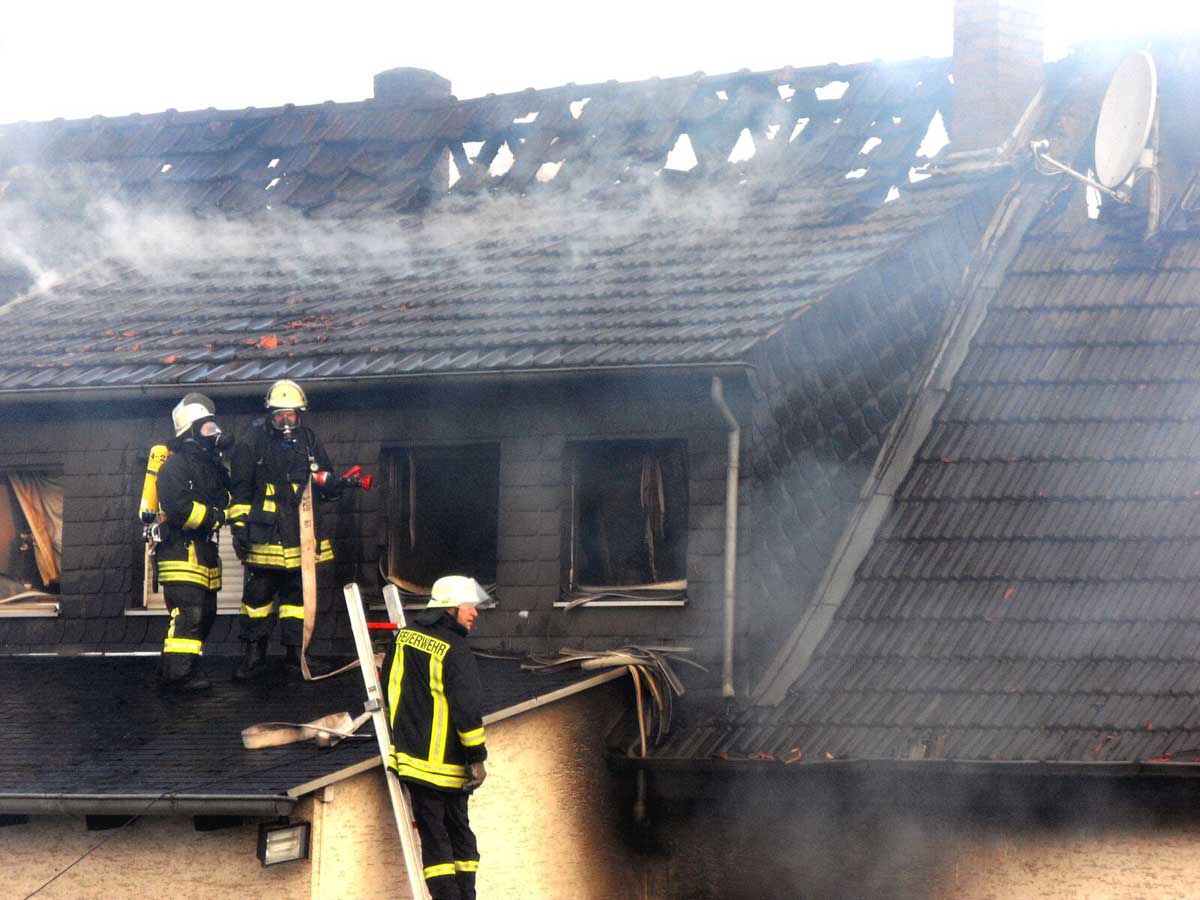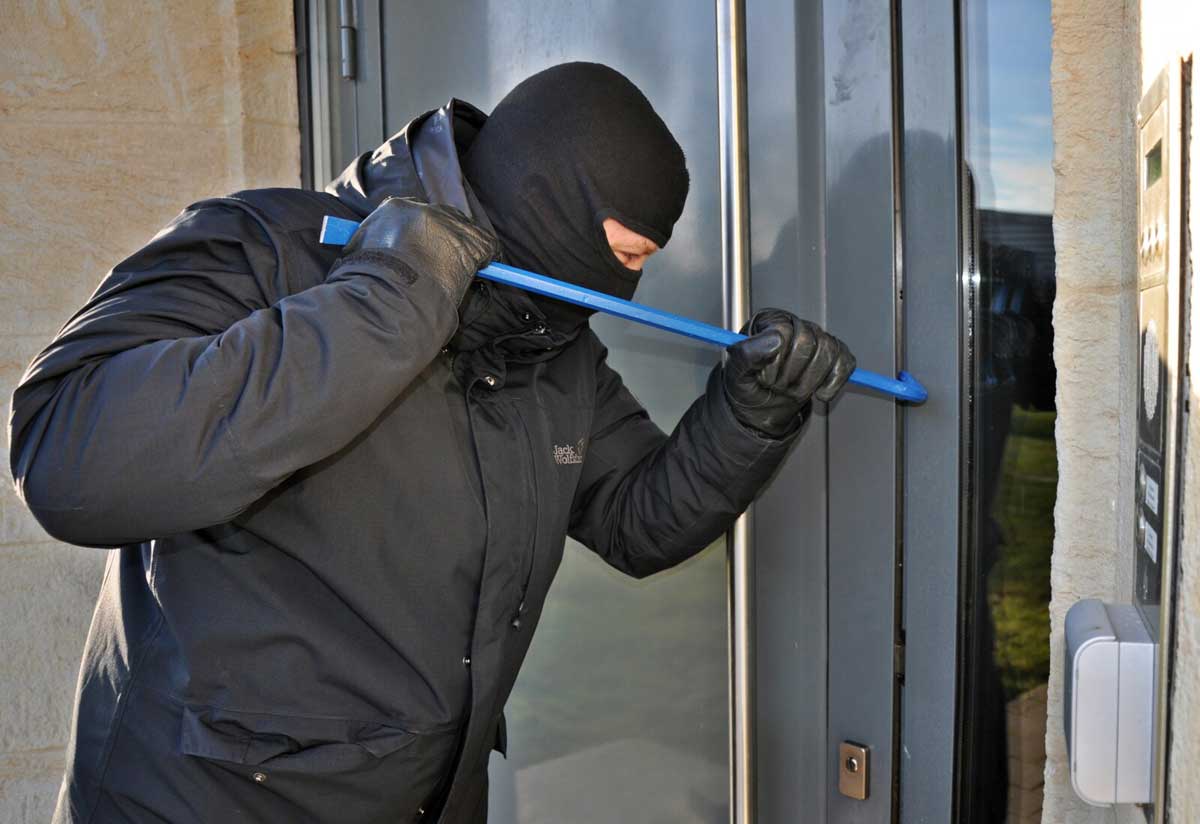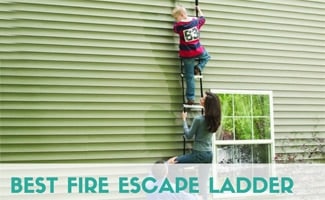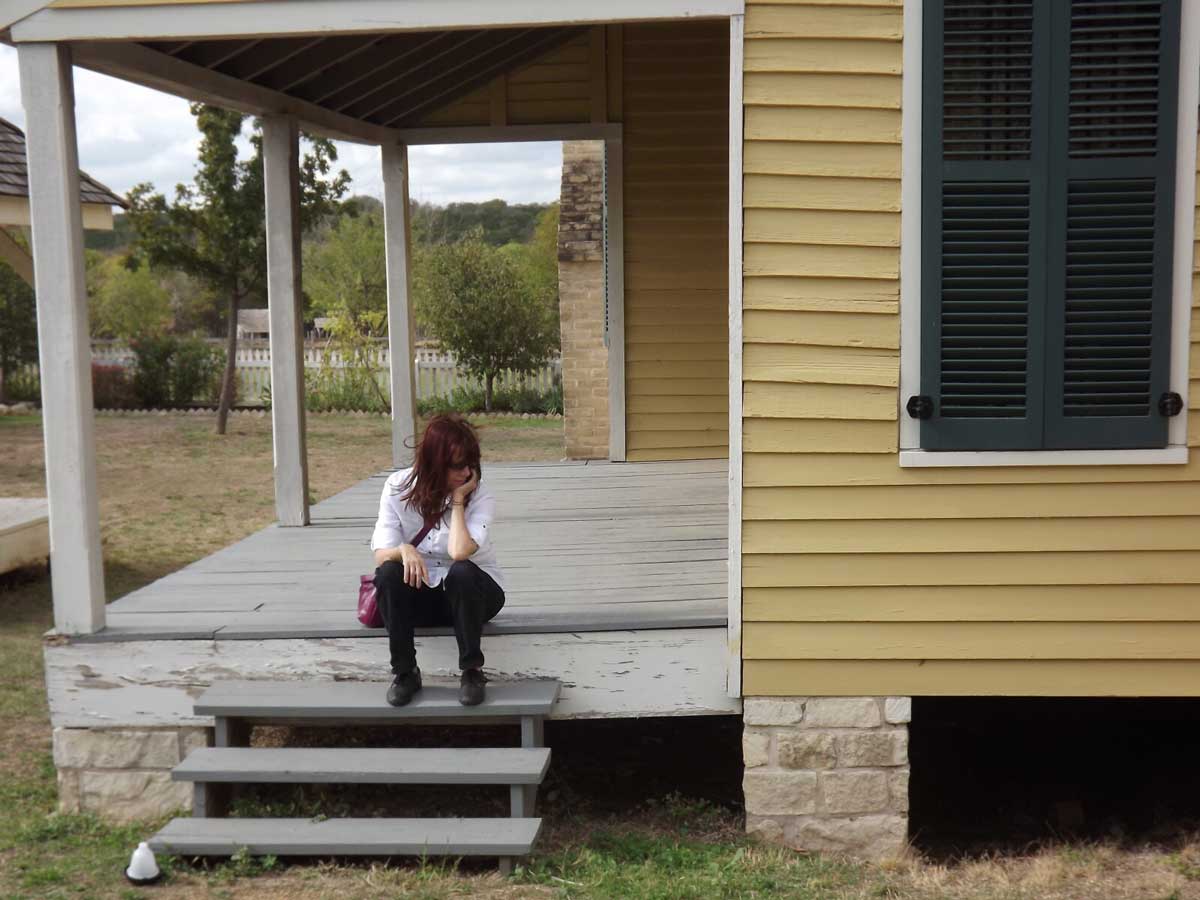Best Smoke Detector: Nest vs Kidde vs First Alert vs BRK & More
When you purchase through links on our site, we may earn a commission. Here’s how it works.

| Winner | Runner Up | Third Place | Combo Winner | Combo Runner Up | Combo Third Place |
|---|---|---|---|---|---|
 | |||||
| Read Review | Read Review | Read Review | Read Review | Read Review | Read Review |
| View on Amazon | View on Amazon | View on Amazon | View on Best Buy | View on Amazon | View on Amazon |
Are your home’s smoke detectors up to snuff? Are you aware that you should replace your smoke detectors at least every ten years? Nearly 57% of home fire deaths occur in homes without working smoke alarms, reports the National Fire Protection Association (NFPA).
If your home doesn’t have smoke alarms and carbon monoxide detectors — or you haven’t properly maintained your home’s detector system — you’re putting your family in grave danger. Our smoke alarm reviews provide all the information you need to choose the best smoke detector for your home or business.
Photoelectric vs Ionization vs Dual: What’s The Safest?
First, what’s the difference between an ionization smoke detector and a photoelectric smoke detector? Ionization detectors are best at detecting fast, flaming fires, while photoelectric sensors respond much better to slow, smoldering fires — anywhere from 15 to 50 minutes faster than ionization technology.
In the past, you only had a choice of one sensor type alarm or the other. But in the last decade or so, dual sensor smoke alarms hit the market running. Dual detectors combine both ionization and photoelectric sensors in a single smoke alarm.
Experts, like the National Fire Protection Association (NFPA) and the U.S. Fire Administration (USFA), overwhelmingly agree that a dual smoke detector is by far the safest way to go — or to have both types of single sensor smoke alarms installed in your home. For this reason, our top three smoke alarm winners are all dual sensor smoke alarms. Safety (and simplicity) are our number one priority for our readers!
Best Smoke Detector Reviews
All of our top picks meet nationally recognized UL217 standards, which are widely considered the top-of-the-line safety standards. Smoke alarm models that meet UL217 standards score highest in performance and safety.
We chose our best smoke detectors based first on safety, but with additional factors in mind: ease of installation, price, features, and consumer reviews. Now, on to our smoke alarm reviews!
Winner: First Alert BRK Hardwire Dual Sensor Smoke Alarm Review
The First Alert BRK 3120B Smoke Alarm is arguably the best dual photoelectric and ionization smoke alarm on the market. This hardwired alarm with battery backup gets rave reviews for its performance and fewer false alarms than similar products.
The BRK 3120B features easy access, a loud 85dB alarm, and two latching features — an alarm latch that identifies the initiating alarm and a low battery latch that identifies which unit is in low battery mode. And you can interconnect up to 18 units in your home or business.
| Pros | Cons |
|---|---|
| Excellent dual sensor technology | Requires hardwiring so it takes more effort to install than battery-operated alarms |
| Simple installation (for a hardwired alarm) | The wiring may not match up with older homes |
| 360 degrees of direct access to a smoke alarm | |
| Easily accessible single button silence/test button | |
| 10-year warranty | |
| Interconnects with up to 12 smoke detectors and six other First Alert devices |
Price
- $59.00
- Two AA batteries included for battery backup
- 10-year warranty
Runner Up: Kidde Hardwired Dual Sensor Smoke Alarm Review
The Kidde P12010 Hardwired Dual Sensor Smoke Alarm is one of the best smoke alarms on the market and a huge rival with our number one pick.
What keeps the Kidde P12010 out of our top spot? This smoke detector is another excellent dual photoelectric and ionization sensor alarm, but its lack of a low-battery silencer and more customer complaints about false alarms puts it just behind the First Alert BRK 3120B.
Still, Kidde’s slightly lower price per unit could make a difference if you’re on a tighter budget. You can interconnect the Kidde with up to 12 other smoke alarms and up to 12 other Kidde devices like CO detectors and heat sensors.
| Pros | Cons |
|---|---|
| The wiring may not match up with older homes | Hardwiring takes more effort to install than battery-operated alarms |
| Easy installation (but requires hardwiring) | No low-battery silencer (only hush for 10 min.) |
| Easy-to-reach hush/test button | Many more false alarm reports by consumers than our top choice |
| Red LED light flashes every 30 seconds to indicate the alarm is operating | The wiring may not match up with older homes |
| 10-year warranty | |
| Interconnects with up to 12 alarms and 12 other Kidde devices |
Price
- $33.90
- Includes one 9-volt battery for backup
- 10-year warranty
Third Place: First Alert Dual Sensor Battery-Powered Smoke Alarm Review
The First Alert SA320CN Dual Sensor Battery-Powered Smoke and Fire Alarm wins our third spot as the best smoke detector.
While interconnected dual sensor units are your best option, that’s not always possible. The battery-operated First Alert SA320CN is ideal for older homes that can’t accommodate modern hard wiring or for those who don’t have the DIY skills to install a hard-wired system.
This dual photoelectric/ionization unit gets excellent reviews on Amazon for performance and a lower rate of false alarms, but you will have to replace its AA batteries regularly.
This detector is also available with a sealed 10-year lithium battery (model #SA3210). While expensive upfront, the SA3210 could be a better option over the long run, saving you the cost and hassle of changing AA batteries. And if you live in California, smoke alarm laws now require you to have a 10-year lithium battery in any battery-operated smoke alarm.
| Pros | Cons |
|---|---|
| Dual sensor technology | Not hardwired, so you can’t interconnect multiple alarms throughout your home |
| Most simple detector to install | Lithium battery model is expensive |
| Smart sensing technology reduces non-emergency or nuisance alarms | No low-battery silencer (only temporary hush) |
| Choose between two models (10-year lithium or regular AA batteries) | Must change batteries regularly to ensure AA battery unit works |
| Batteries are easily accessible | |
| Single hush/test button |
Price
- Check Amazon for availability
- Batteries included for both models
- 10-year warranty
Best Combo Smoke And Carbon Monoxide Detector Reviews
We’ve also included our top picks for the best combination of smoke and carbon monoxide detectors to meet multiple home safety needs in one device. But if you’re looking for a separate CO detector, be sure to read our reviews of the best carbon monoxide detectors.
Note: The following UL217-certified combo smoke and carbon monoxide detectors only use photoelectric technology, rather than having dual photoelectric and ionization sensors. So it’s important to have dual smoke alarms placed in other areas of your home for your ultimate safety.
Winner: Nest Protect Review
The Nest Protect Smoke Plus Carbon Monoxide 2nd Generation is a high-tech, WiFi-enabled alarm that gets excellent customer reviews. This detector is an interconnected photoelectric system that connects through WiFi with your iPhone, iPad, or Android, allowing you to receive smartphone messages if your alarm triggers or its battery is low.
Nest’s 1st Gen. Smoke Plus Carbon Monoxide Alarm had some tech issues, but it appears that the later generation product has hit the ground running. It is, arguably, the best combo photoelectric smoke and carbon monoxide detector on the market. But it comes at a higher price. We love that you can hush low battery or false alarm from your smartphone app, it has safety lights illuminate your pathway and other high-tech features.
Personal Experience
I’ve had the Nest Protect for the last couple of years. It was easy to install, and I love that it functions as both a smoke and carbon monoxide detector, reducing the need for multiple devices. I also like being able to get alerts on my phone. This gives me peace of mind when I’m away from home.
– Neil G.
| Pros | Cons |
|---|---|
| WiFi-enabled detectors send alerts to your smartphone | Expensive |
| Easy installation | Warranty only 2 years |
| Detects carbon monoxide | Requires more batteries than other top models |
| Heat and humidity sensors reduce false alarms | Not dual sensored |
| Self-tests batteries and sensors, has a voice alarm | |
| App controls other Nest products like the Nest Cam and Thermostat |
Price
Nest 2nd Gen. comes as a battery-operated or hard-wired unit. Both are the same price.
- Check Amazon for availability
- Requires iOS 8+ or Android 4.1+ for smartphone alerts
- Battery operated unit includes six long-life AA lithium batteries
- Hard-wired unit includes three long-life AA lithium batteries
Read Our In-Depth Review Of Nest Protect
Runner Up: First Alert SC07 Talking Smoke Alarm & Carbon Monoxide Detector Review
If you’re on a budget and can’t afford a WiFi-enabled detector, the First Alert SC07 combination smoke alarm and carbon monoxide detector is a safe, smart choice. This alarm is voice-enabled and tells you whether the danger is smoke or carbon monoxide and where the threat is among up to 11 pre-programmed locations in your home. The alarm is loud enough to hear throughout your home, and users say installation is a breeze.
| Pros | Cons |
|---|---|
| Budget-friendly | Not hardwired, so you can’t interconnect with other alarms throughout your home |
| Easy installation | Not dual sensored |
| Tells you whether the threat is smoke or CO and where it’s located in your home | Requires regular battery changes |
| Easy-to-reach hush/test button and easy access to change batteries | |
| 7-year warranty |
Price
- Check Amazon for availability
- Includes 2 AA batteries
- 7-year warranty
Third Place: First Alert Onelink Review
Onelink is a carbon monoxide and smoke detector in one (similar to Nest Protect). It is also Alexa-enabled and Apple HomeKit-compatible, so you can ask it the weather, play music, or request it turn your lights off.
This detector is hardwired and can replace your current smoke detector. It has a 10-year battery backup and 85dB alarm. The Onelink Home app sends push notifications to alert you of any fire, smoke, and carbon monoxide.
Onelink has some really cool technology, but if you simply need a smoke detector, we’d suggest sticking with the basics. They are less expensive than Onelink and you are less likely to run into any confusion with how to use it.
| Pros | Cons |
|---|---|
| WiFi-enabled detectors send alerts to your smartphone | Expensive |
| Simple installation (for a hardwired alarm) | Requires hardwiring so it takes more effort to install than battery-operated alarms |
| Detects carbon monoxide | Consumer complaints about certain elements not working (nightlight, Alexa connectivity, etc.) |
| Voice alarm | Not dual sensored |
| Alexa-enabled and Apple HomeKit-compatible | Warranty is only three years |
Price
- $349.99
- Three-year warranty
Where Are The Safest Places To Install Smoke Detectors?
Smoke detector placement is as important as the type of smoke detectors you install in your home. According to the NFPA, the ideal placement is in every bedroom and other sleeping areas.
8 Key Places To Install Smoke Detectors
Make sure you install at least one at each of the following locations:
- Every floor of your house
- Every bedroom
- Basement
- Near your attic
- Living room
- Den
- Kitchen
- On the landings between your floors
How Should You Maintain Your Smoke Alarms?
It’s imperative to keep your smoke and all other types of detectors in top working condition to ensure your home’s safety. The USFA recommends testing each smoke alarm once a month and changing batteries at least once a year in both battery-operated smoke detectors and hardwired alarms with a battery backup.
The NFPA found that in all home fires reported to U.S. fire departments between 2009-2013 in which smoke alarms were present but did not operate, nearly half of the smoke alarms had missing or disconnected batteries. And dead batteries caused one-quarter of the smoke alarm failures.
Tip
Label or mark the outside of your smoke and other detectors with the battery type(s) and last replacement date so you can easily reference each device (without having to disassemble or remember when you last changed the battery). We also recommend keeping extra batteries on hand for when they are low or need replacing. No one wants to listen to that annoying chirping sound.
Infographic: Other Dangers Lurking In Your Home
In addition to smoke and carbon monoxide, here are some other dangerous places that could cause potential problems in your home (and how to prevent them).

Video: Smart Choices For Smoke Alarm Placement
Widespread coverage is the best solution. Check out the video below for more details about smoke detector placement in your home.
Your Safety Is Our Priority
Here at Security Systems Reviews, your safety is our number one priority. We hope we’ve armed you with the information you need to know and choose the best smoke alarms for your home. To learn other ways you can protect your home, read our reviews of fire extinguishers, fire ladders, carbon monoxide detectors, and home security systems.










